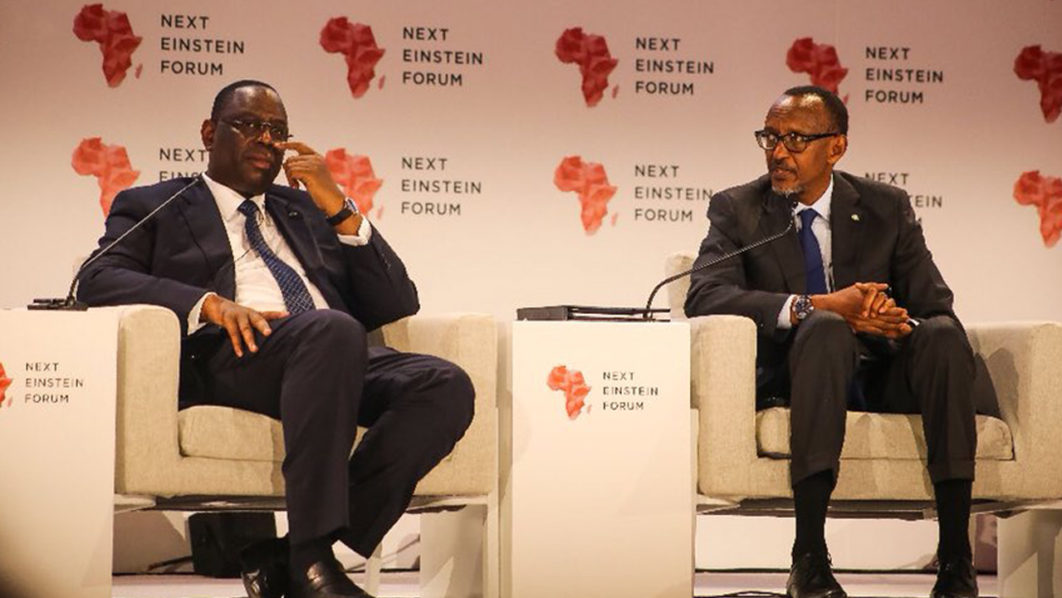
…Rwanda, Senegal take the lead
Although two African giants- Nigeria and South Africa – and nine other countries did not sign the agreement for the African Continental Trade Area (AfCFTA) in Rwanda recently, the 44 others are ready to implement the content of the trade deal, according to the President of the Africa Union (AU) and President of Rwanda Paul Kagame.
Kagame spoke Tuesday during the Presidential Panel of the Next Einstein Forum, NEF, in Kigali while responding to questions on Laying the Framework for Knowledge and Economics: Policy and Practice.”
He made specific reference to the CFTA agreement that was signed by AU states under his leadership and promised to persuade other leaders to quickly implement the science and education components of the deal. “I will work with other leaders to seize this moment,” Kagame said while referring to the trade deal boycotted by Nigeria and South Africa.
[related ids=”590819,590833″]
Senegalese President Macky Sall corroborated Kagame’s position on the CFTA and told the gathering of more than 1,600 scientists at the Kigali Convention Centre that his country had, in fulfilment of the trade agreement, abrogated an existing law reserving academic positions for only Senegalese nationals to allow free movement of labour in Science and Technology.
President of the African Institute for Mathematical Sciences (AIMS) and Founder of NEF, Mr Thierry Zomahoun, in response said the two African leaders had blazed the trail in driving Information Technology revolution agenda and were “leading two most progressive countries in Africa.”
Forty-four African countries had signed the agreement that established the AfCFTA without the two biggest economies and nine others.
At least 22 countries were required to sign to kick-start project billed to take off effectively within 18 months.
Botswana, Lesotho, Namibia, Zambia, Burundi, Eritrea, Benin, Sierra Leone and Guinea Bissau had also stayed off the deal for undisclosed reasons.
Although no clear reason was given for the Nigeria boycott, President Muhammadu Buhari was quoted as saying that his administration would not want the country to be a dumping ground in the continent.
Manufacturers and other private sector operators had also said that the deal would not favour Nigeria’s economy.
President of the Manufacturers Association of Nigeria (MAN), Dr. Frank Jacobs, was also quoted as saying that the fact that the conditions allowed only 10 percent of products to be protected made the deal unfavourable. He insisted that until government’s mechanism for enforcement of rules of origin was defined, local manufacturers would not support the deal.
[ad unit=2]



